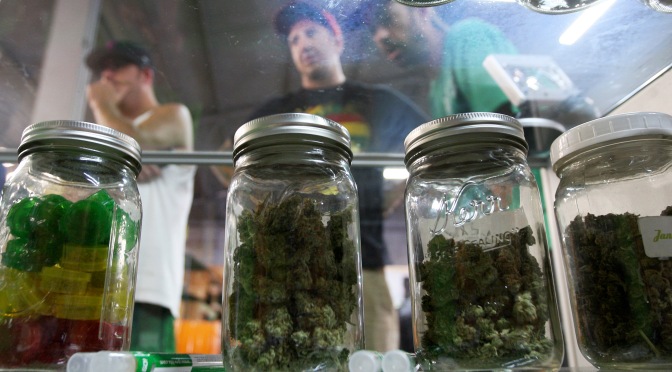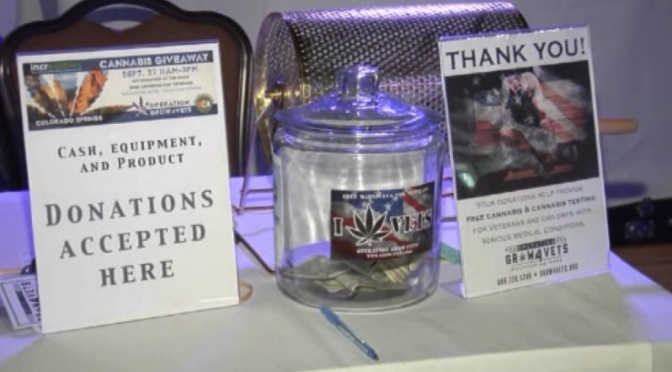San Ysidro, Calif. — Mexican traffickers are sending a flood of cheap heroin and methamphetamine across the U.S. border, the latest drug seizure statistics show, in a new sign that America’s marijuana decriminalization trend is upending the North American narcotics trade.
The amount of cannabis seized by U.S. federal, state and local officers along the boundary with Mexico has fallen 37 percent since 2011, a period during which American marijuana consumers have increasingly turned to the more potent, higher-grade domestic varieties cultivated under legal and quasi-legal protections in more than two dozen U.S. states.
___________________________________________________________________________________________________________________
USA — The conservative wave of 2014 featured an unlikely, progressive undercurrent: In two states, plus the nation’s capital, Americans voted convincingly to pull the plug on marijuana prohibition. Even more striking were the results in California, where voters overwhelmingly passed one of the broadest sentencing reforms in the nation, de-felonizing possession of hard drugs. One week later, New York Mayor Bill de Blasio and the NYPD announced an end to arrests for marijuana possession. It’s all part of the most significant story in American drug policy since the passage of the 21st Amendment legalized alcohol in 1933: The people of this country are leading a dramatic de-escalation in the War on Drugs.
___________________________________________________________________________________________________________________
Santa Rosa, Calif. — A tribe in Mendocino County plans to be the first tribe in the state to grow and distribute a large amount of medical marijuana.
The Santa Rosa Press Democrat reported the announcement late last week by the 250-member Pinoleville Pomo Nation. The deal authorizes a Colorado-based investor, United Cannabis, and Kansas-based FoxBarry Farms to grow and distribute products from thousands of marijuana plants at the tribe’s rancheria north of Ukiah.
___________________________________________________________________________________________________________________
Columbus — A new group today announced plans to place a ballot initiative before Ohioans in 2016 that would fully legalize marijuana. Cleveland-based Ohioans to End Prohibition proposes to allow anyone over the age of 21 to legally grow, purchase, possess and use marijuana while also granting merit-based licenses to commercial growers.
Another group, ResponsibleOhio, hopes to place a constitutional amendment on the November ballot that would permit 10 businesses to grow and sell marijuana wholesale for personal and medicinal use by those over age 21.
__________________________________________________________________________________________________________________



